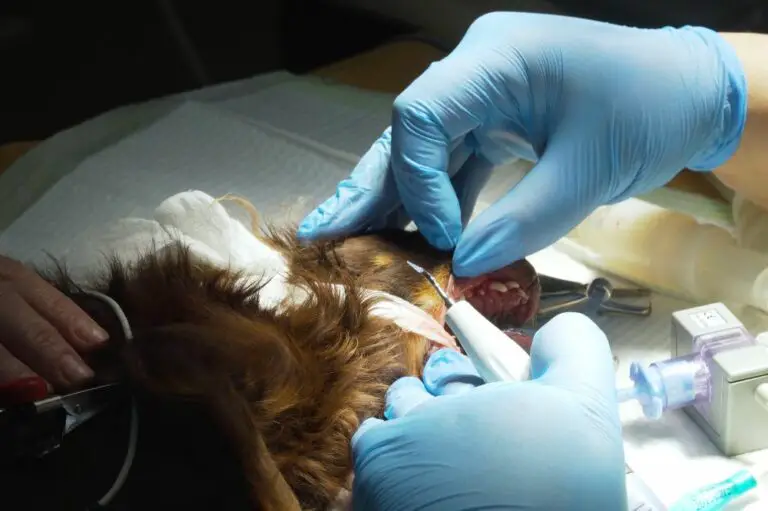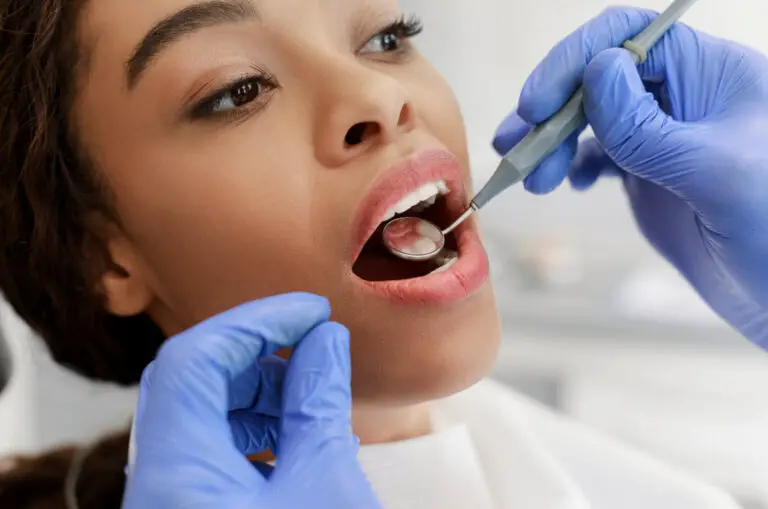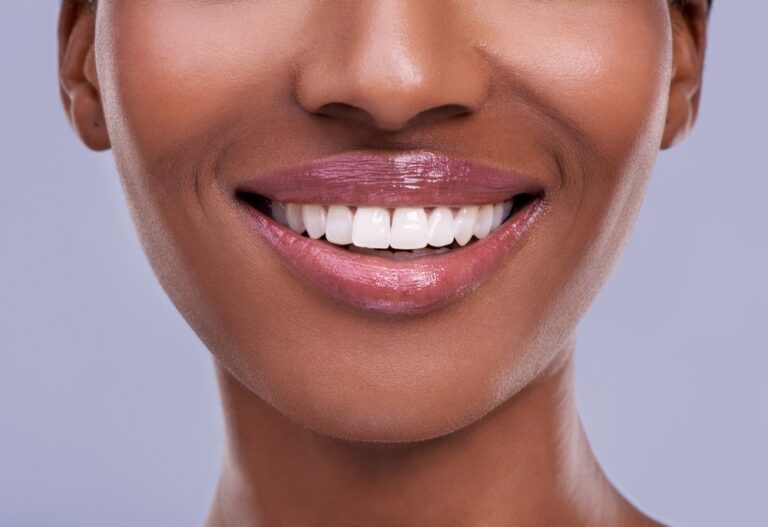If you’re a coffee lover, you’ve probably considered whitening your teeth at least once in your life. As delicious as the drink is, it’s a major contributor to discoloration. What you might not know is that you will need to go without following your whitening appointment.
You should not drink coffee for at least 48 hours after your teeth whitening session. This allows your teeth enough time to remineralize and minimizes the chance of further staining and discoloration.
While it might be difficult to resist the urge, there’s a reason dentists want you to limit your diet immediately after you whiten your teeth. Keep reading to learn more about the sensitive period, how you can protect your teeth, and keep them bright in the long run.
How Long After Teeth Whitening Can I Drink Coffee and Why?
Most dentists recommend you wait at least 48 hours after whitening to consume coffee or other stain-causing foods and beverages. If you had a gentler treatment, like carbamide peroxide, your dentist may shorten the amount of time to just 24 hours.
This schedule allows your teeth to heal after your procedure. When you whiten your teeth, the bleaching agent erodes some of your enamel and leaves your teeth more porous and sensitive than when you started.
While the sensitivity varies from person to person, every individual is more susceptible to staining during this period. You want to wait a few days for your tooth enamel to remineralize and defenses to stand tall again.
Tips for Protecting Your Teeth Immediately After Whitening

Coffee isn’t the only thing you need to watch out for immediately after a professional whitening treatment. To make sure you get the most out of the procedure (and protect your overall dental health):
- Limit yourself to a “white diet” to limit tooth discoloration
- Use a straw when drinking colored beverages
- Implement good oral hygiene habits
- Rinse with water (or brush) after drinking or eating
By following these tips, you can keep your white smile for much longer.
Limit Your Diet to Non-Staining Foods and Drinks
As you already know, what you consume plays a major role in dental discoloration. When you’re in that special period right after whitening, you want to limit your diet to prevent staining foods from invading your open pores.
Just like there are specific foods and drinks you should avoid, we have a list of recommended foods to stock up on for the days following your professional teeth whitening appointment.
Foods to Avoid
Generally, you want to avoid dark foods known for staining and acidic foods that will further erode your enamel. This includes:
- Dark-colored foods, like beets
- Processed and sugary foods
- Citrus
- Dyed/colored foods
- White and red wine; beer
- Coffee and tea
By avoiding any foods you know cause discoloration, you can reach the teeth color you imagine in a short period of time.
Foods to Consider
Dentists recommend a “white diet” following a whitening procedure. These foods are unlikely to exacerbate the whitening process, allow you to maintain oral health, and limit tooth staining chances.
These include:
- Milk, cheese, yogurt
- Fish, chicken, and tofu
- White rice, pasta, doughy breads (without colorants)
- Light fruits and vegetables (i.e. potatoes, apples, cauliflower, pears, bananas)
Stock up on these beforehand to make sure you have a proper diet following your procedure.
Use a Straw
If you must indulge in your daily cup of joe, consider using a straw. This is easy with iced coffee, but a hot cup of coffee may be better off in a thermos with a built-in straw.
This goes for all dark liquids, including soda and wine, as well as sports drinks and other dyed beverages. While you still risk stains, you limit the exposure to your teeth by channeling it through a straw.
If you’re a swisher, make sure you don’t push the liquid around before swallowing; this defeats the purpose.
Maintain Proper Oral-Hygiene Habits
Don’t assume that your whitening appointment or at-home whitening treatment means you have a free day off from your regular oral hygiene schedule. In fact, it’s even more important that you brush and floss to ensure you don’t end up with coffee stains immediately following the procedures.
You can even boost the process by using whitening toothpaste as you brush twice daily. You can also limit the effects on your teeth by brushing more often, such as immediately after drinking coffee or eating.
If you can’t make your way to a bathroom to do this, try disposable tooth wipes or mini toothbrushes.
Rinse With Water
Even just rinsing with water can minimize the discoloration of your teeth following your procedure. Drink water whenever possible, and swish it around to get rid of residual liquid and neutralize acid.
While we’re on this subject, saliva has similar benefits. Avoid dry mouth by staying hydrated, and increase saliva production by chewing gum.
Long-Term Tips for Keeping Teeth White
Keeping your teeth white is something to consider at all times, not just when you’re craving a cup of coffee immediately after your whitening appointment. By following these long-term tips, you can minimize the need for whitening sessions and keep your teeth a more comfortable shade overall.
Most dentist recommend:
- Moderate consumption of staining foods (and proper follow up procedures)
- Swapping out your favorites (like coffee) for stain-free alternatives
- Checking in with your dentist at least twice a year
By doing these things, you can achieve a more pleasant smile, spend less time worried about whitening, and improve your overall dental health.
Consume in Moderation
We understand that coffee is addictive and can help you get through your day with plenty of energy and minimal agitation. Regardless, the recommended daily limit is 1 to 2 cups a day.
If you spend all day bathing your teeth in a stain, you’re bound to end up with some pretty severe discoloration. By cutting down to a few cups a day, you can more easily manage your follow up procedure of drinking water and brushing your teeth to clear off the staining agents.
This doesn’t mean you need to avoid stain-causing foods outright, but you should understand how to clean up afterwards. Things like soy sauce or even tomatoes contribute to discoloration and other issues. If they’re part of your daily diet, you increase your chances of these problems occurring.
Stain-Free Alternatives
Cutting back may not seem feasible for you. Instead, you may need to find some stain-free alternatives to keep you caffeinated and functioning.
The most common for coffee include:
- White Teas: from the same plant as green tea, but with gentler processing that keeps flavor fresh; contain the same nutrients (although may have a lower caffeine concentration; come in different varieties (i.e. Silver Needle, White Peony, Darjeeling White Tea)
- Rooibos Herbal Tea: known as the “coffee drinker’s tea” because of its nutty taste (also Red Tea or Red Bush Tea); actually a tisane, meaning it contains fewer tannins that stain; caffeine free
- Yerba Mate: South American tea served both hot and cold; rich in antioxidants and naturally caffeinated; believed to benefit cholesterol, weight loss, and heart health
If you’re trying to kick your coffee habit, consider what it is that has you hooked. Is it the caffeine? Are you a person who sips on a drink when you’re bored? Find a solution that meets your needs, like caffeinated gum or a gentler beverage, and you can limit future discoloration.
Check in With Your Dentist Regularly
Regular check-ins are important for a number of reasons, including keeping your teeth on the brighter side of white. Your dentist will appreciate the investment in your oral health, and you’ll be able to stay on top of your dental situation.
A whitening session can only play catch up; by maintaining a regular cleaning schedule, you can keep your teeth clean of plaque (which also contributes to discoloration) and catch any other issues early on.
Discoloration will be the least of your problems if other issues like tooth decay or gum recession sneak up on you. WHitening can also worsen some of these problems, so you should make sure you’re in the clear before moving forward.
If you’re starting off with at-home whitening treatments, consider having them done in-office or making your dentist aware of them. They can help you choose a product that’s best for your specific situation and make sure you’re avoiding common mistakes.
Conclusion
While you may be tempted to stop at your local coffee shop as you leave your dentist’s office, it’s best to steer clear. The cravings won’t go away, but it’s not worth replacing the stains you just bleached off your teeth.
If you think this will be a problem, try to plan ahead. Freeze your coffee shop rewards card, and stock up on alternative beverages. Grab a pack of caffeinated gum, or have someone keep you accountable (at least for the next two days).
Still have questions about coffee stains, teeth whitening, or other dental health concerns? We’re more than happy to help out in the comments below.







